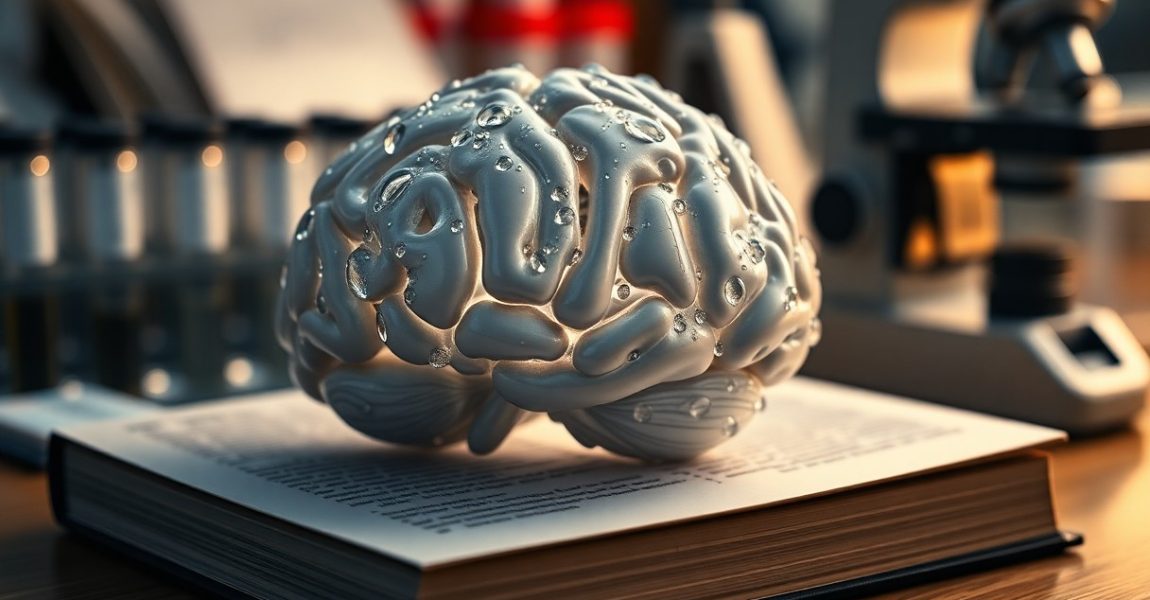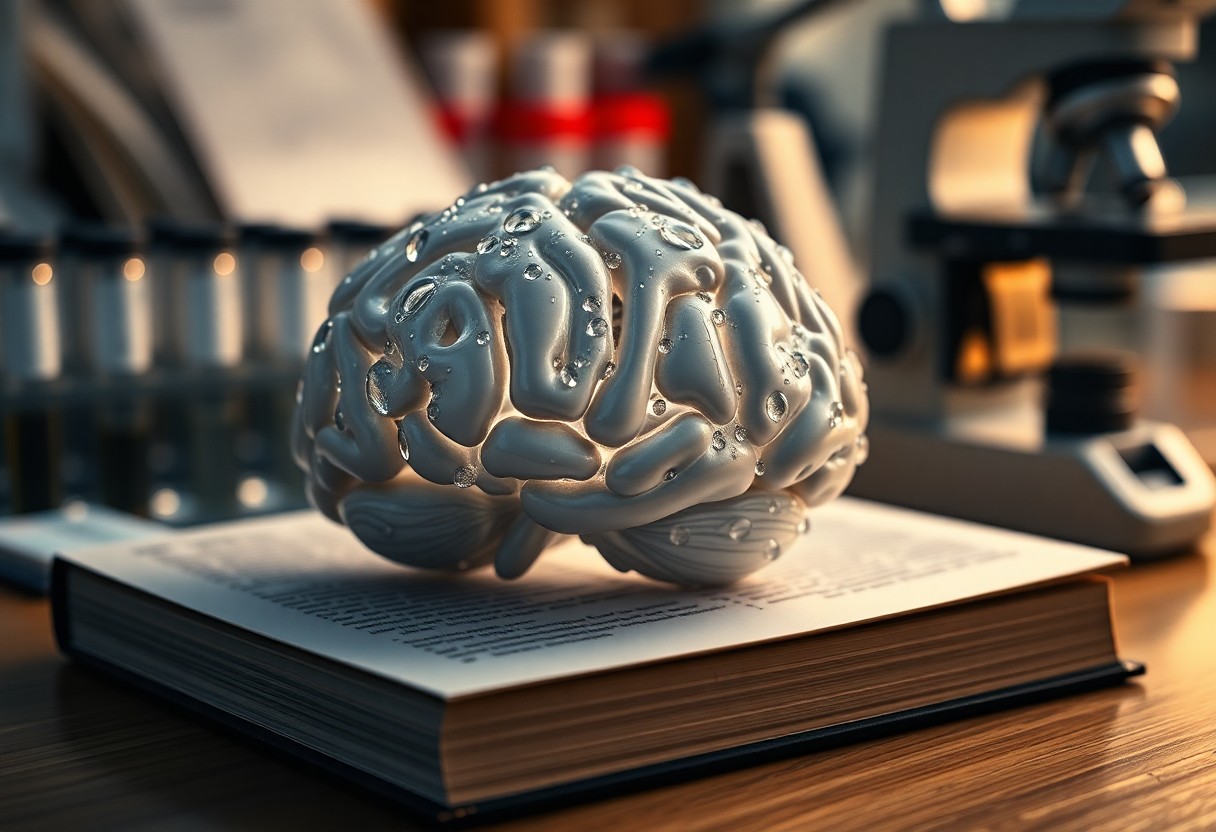
Most people underestimate the impact of hydration on brain function. Whenever you feel sluggish or find it difficult to concentrate, it may be linked to your water intake. By ensuring you stay hydrated, you can enhance cognitive performance, improve mood, and reduce irritability. Low water levels can lead to significant cognitive decline, impacting your ability to think clearly and make decisions. In this post, you’ll discover the science behind hydration and its transformative effects on your brain power. Boost your brain power and stay sharp every day with pure water for dispensers—hydration made simple for better focus and clarity
Contents
- 1 The Biochemical Connection: How Hydration Affects Brain Function
- 2 Cognitive Benefits of Adequate Hydration
- 3 The Dehydration Dilemma: Recognizing the Impact on Mental Clarity
- 4 Practical Hydration Strategies for Enhanced Brain Performance
- 5 Breaking the Myths: Debunking Common Misconceptions About Hydration and Cognition
- 6 To wrap up
- 7 FAQ
Key Takeaways:
- Staying hydrated enhances cognitive functions, including memory, attention, and overall mental clarity.
- Even mild dehydration can lead to decreased cognitive performance and increased feelings of fatigue.
- Water regulates body temperature and supports blood flow, which are vital for maintaining optimal brain function.
- Consuming sufficient water can facilitate neurotransmitter function, contributing to better mood and mental health.
- Incorporating regular water intake throughout the day leads to improved focus, creativity, and problem-solving abilities.

The Biochemical Connection: How Hydration Affects Brain Function
Research shows that even mild dehydration can negatively impact cognitive performance. Your brain is composed of nearly 75% water, which means sufficient hydration is crucial for maintaining optimal function. As dehydration sets in, neurons become less efficient at communicating, leading to dips in memory, attention, and even executive functions. The brain requires water not only to maintain structural integrity but also to facilitate complex biochemical processes that underlie cognition. Fuel your mind with Spritzer Mineral Water – the natural hydration your brain needs to stay sharp, focused, and energized every day
Water as a Messenger: Neurotransmission and Communication
Neurotransmitters, the chemical messengers that allow neurons to communicate, rely significantly on hydration levels for their effectiveness. For instance, a substance called acetylcholine, vital for memory and learning, requires a well-hydrated environment to function optimally. Without sufficient water, your body’s ability to synthesize these neurotransmitters can diminish, leading to impaired communication between brain cells. This impairment often manifests as forgetfulness, difficulty concentrating, or a general feeling of mental fatigue.
The Role of Electrolytes: Balancing Brain Activity
Electrolytes, including sodium, potassium, and magnesium, play an integral role in maintaining the electrical balance necessary for proper neuroactivity. When you’re hydrated, these electrolytes remain in a healthy equilibrium, supporting cellular functions and keeping the brain energized. An imbalance, often resulting from dehydration, can lead to increased neural excitability or sluggishness, both detrimental to your cognitive abilities. Ensuring you consume an adequate amount of fluids along with crucial minerals allows your brain to perform efficiently and adapt to varying demands of cognitive tasks.
Low electrolyte levels can also lead to symptoms like confusion, increased irritability, and cognitive decline. Sodium helps manage fluid balance in the brain, while potassium is crucial for transmitting electrical signals. By keeping these electrolytes in check through your hydration practices, you actively promote better neural connections and cognitive clarity. Striking the right balance ensures your brain is not just hydrated but also functioning at peak capacity, ready to take on the day’s challenges.
Cognitive Benefits of Adequate Hydration
Hydration plays a vital role in cognitive function, particularly in memory formation and concentration. When your body is well-hydrated, it translates to improved brain performance, enhancing your ability to think clearly and retain information. Research indicates that even mild dehydration can negatively affect cognitive abilities, leading to difficulties in focus and retention. A steady intake of water helps maintain optimal blood flow to the brain, which is necessary as cognitive processes rely on adequate oxygen and nutrients found in blood. You may notice significant improvements in your overall mental agility with just a few extra glasses of water a day.
Memory: The Link Between Water Intake and Retention
Studies have shown a noteworthy correlation between hydration levels and memory retention. When you keep your brain hydrated, it enables your neurons to communicate more effectively, which is critical for learning new information and recalling stored memories. A research study found that participants who had consumed ample amounts of water exhibited significantly better memory recall compared to their dehydrated counterparts. Your brain utilizes water for the production of neurotransmitters, which are necessary for transmitting signals between nerve cells; thus, proper hydration directly influences your ability to learn and remember.
Concentration: Staying Sharp with Sufficient Hydration
Maintaining concentration is often a challenge, especially in today’s fast-paced world saturated with distractions. Proper hydration can be one effective strategy to combat this issue. Studies have revealed that individuals who are well-hydrated display greater attention spans and are more efficient in tasks requiring sustained focus. In fact, a mere 2% decrease in body water can lead to performance impairments in tasks that necessitate attention and psychological effort. Consequently, sipping water throughout your day isn’t just about quenching your thirst; it’s about empowering your mind to stay engaged and sharp.
Focusing well requires an optimal balance of hydration that supports cognitive functions. In environments where you are subjected to increased mental strain, such as during exams or project deadlines, increased water intake can significantly improve your brain’s endurance and resilience. Making hydration part of your daily routine can significantly enhance your performance at work or in studies, allowing you to tackle challenges with clarity and confidence.
The Dehydration Dilemma: Recognizing the Impact on Mental Clarity
Your brain is acutely sensitive to both hydration and dehydration, so understanding the signs of insufficient water intake can be a game changer. Even a small drop in hydration, around 2% of your body weight, can lead to noticeable declines in cognitive performance. You may find that your thought processes slow down, making it more challenging to concentrate or retain information. Additionally, mood changes, such as increased irritability or anxiousness, can also accompany a lack of hydration, further hampering your ability to think clearly.
Symptoms of Dehydration: When Water Levels Drop
As dehydration progresses, your body exhibits various symptoms that signal a need for more water. You might experience persistent fatigue and dark-colored urine, alongside a dry mouth and increased thirst. Cognitive impacts often show themselves as mild headaches, difficulty focusing, and slower problem-solving skills. If you ever find yourself in a situation where you’re struggling to articulate your thoughts or feeling mentally foggy, taking a moment to evaluate your hydration levels could be beneficial.
Research Findings: Studies Linking Hydration to Cognitive Decline
Numerous studies have established a connection between hydration status and cognitive function. For instance, research has found that even mild dehydration can impair your attention span, long-term memory, and overall mental capacity. In one notable study, participants showed a significant decline in cognitive performance after losing just 1.5% of their body weight to dehydration. This decline was observed across various tasks, including simple calculations and more complex problem-solving scenarios.
Further investigations into hydration and cognitive decline confirm that extended periods of dehydration can have lasting negative effects on your mental acuity. A review of various studies indicated that older adults, in particular, are particularly vulnerable. As your brain ages, a drop in hydration levels can exacerbate age-related cognitive decline. It becomes increasingly clear that maintaining adequate hydration is vital not only for immediate cognitive clarity but also for your long-term brain health and performance.
Practical Hydration Strategies for Enhanced Brain Performance
Daily Water Intake Guidelines: How Much Do You Really Need?
Your individual water needs can vary based on factors such as body weight, activity level, and climate. A commonly referenced guideline is to aim for at least half your body weight in ounces of water each day. For instance, if you weigh 160 pounds, that translates to around 80 ounces, or approximately 10 cups of water per day. If you engage in vigorous exercise or live in a hot environment, your hydration needs increase; a good practice is to add an additional 12-16 ounces for each hour of physical activity you complete.
In addition to these general guidelines, your body can be a helpful indicator of your hydration levels. Monitoring the color of your urine can provide insights—clear to light yellow signals adequate hydration, while darker shades may indicate a need for more fluids. This self-assessment allows you to fine-tune your water intake throughout the day based on your personal needs.
Best Practices: Incorporating Hydration into Your Routine
Making hydration a seamless part of your day can lead to improved cognitive function without much effort. One effective method is to keep a reusable water bottle with you at all times; not only does this serve as a visual reminder to drink, but it also makes it easy to track your intake. Set specific goals for drinking water throughout different parts of the day, such as finishing half of your bottle by lunchtime and the other half by the end of the workday.
Incorporating hydration strategies can also be fun and flavorful. Infusing your water with slices of fruits, herbs, or cucumber not only enhances flavor but can make drinking plain water feel fresh and exciting. Additionally, pairing your meals with a glass of water can aid in digestion and promote a consistent hydration habit. Taking short hydration breaks during your work or study sessions can recharge you physically and mentally without disrupting your flow.
Experimenting with time-based reminders on your phone can also keep you accountable for your water consumption. Set an alarm to go off at intervals, prompting you to take a sip or finish a portion of your bottle. Combine this approach with a personal goal tracker for added motivation. Hydration doesn’t just support brain function; integrating mindful practices can transform how you think about maintaining your overall well-being and creating lasting habits.
Breaking the Myths: Debunking Common Misconceptions About Hydration and Cognition
The Misinformation around Caffeinated Beverages
You may have heard that caffeine dehydrates you, leading to misguided fears about your morning cup of coffee reducing your hydration levels. However, research indicates that moderate consumption of caffeinated beverages does not significantly contribute to dehydration. In fact, studies reveal that the diuretic effect of caffeine is not strong enough to counteract the hydrating benefits it provides. When consumed in moderation, coffee and tea can actually contribute to your daily fluid intake while providing a mental boost, enhancing alertness and cognitive performance thanks to their caffeine content.
Nevertheless, moderation is key. Excessive caffeine can lead to negative side effects such as increased heart rate, anxiety, and disrupted sleep patterns. Maintaining a balance between caffeine intake while ensuring adequate water consumption provides you with the optimal environment for cognitive function without succumbing to the adverse effects associated with overindulgence.
Water vs. Other Fluids: What Truly Counts for Brain Health
Not all fluids hydrate your body equally, and distinguishing between them can help you make wise choices for your brain’s health. While beverages like sodas and fruit juices may seem refreshing, they often contain high levels of sugar and other additives that can lead to fluctuations in your energy levels and even cognitive performance. Water, on the other hand, is calorie-free and works effectively to maintain optimal hydration levels without weighing you down with unnecessary sugars. Furthermore, studies show that even mild dehydration can impair cognitive function, making the choice of your fluids more important than you might think.
Choosing water as your primary beverage promotes sustained energy and clearer thinking. You may find that when you prioritize water over sugary or caffeinated alternatives, your concentration improves, and you feel more alert throughout the day. In contrast, opting for drinks laden with artificial ingredients or high sugar content can contribute to a sluggish feeling and decreased cognitive sharpness, impacting your overall brain health.
To wrap up
As a reminder, staying well-hydrated is not just beneficial for your physical health, but it also plays a significant role in enhancing your brain function. By ensuring you drink enough water throughout the day, you can improve your concentration, memory, and overall cognitive performance. Hydration helps to maintain optimal blood flow to your brain, allowing for better communication between neurons and ultimately leading to sharper thinking and quicker decision-making.
In addition to these cognitive benefits, your mood and stress levels can also be positively influenced by proper hydration. Fatigue and irritability can often stem from even mild dehydration, which can cloud your mental clarity. To harness the full potential of your brain, aim to drink water regularly and be conscious of your intake, especially during periods of intense mental activity. By prioritizing hydration, you empower yourself to think more clearly and perform better in your daily tasks.
FAQ
Q: How does water impact cognitive function?
A: Water plays a pivotal role in maintaining cognitive function. When the body is adequately hydrated, the brain can operate efficiently, enhancing focus, attention, and memory. Dehydration can lead to fatigue, confusion, and difficulty concentrating, which can impair mental performance.
Q: Can drinking water improve my mood?
A: Yes, staying hydrated can positively influence your mood. Studies suggest that dehydration may lead to increased feelings of anxiety and irritability. By ensuring that you drink enough water throughout the day, you may help maintain a more stable and positive emotional state.
Q: How does water consumption affect memory?
A: Proper hydration is associated with better memory retention and recall. Water facilitates the circulation of nutrients to brain cells and assists in the removal of waste products. A well-hydrated brain is better equipped to process and store information, thereby enhancing memory and learning abilities.
Q: Is there an optimal amount of water to drink for brain function?
A: While individual water needs can vary based on factors like age, activity level, and climate, aiming for around 8 to 10 cups (about 2 to 2.5 liters) per day is a common recommendation for adults. Listening to your body’s thirst signals and adjusting your intake according to your needs can help support optimal brain function.
Q: Can specific types of beverages replace water for brain health?
A: While other beverages like herbal teas, low-sugar fruit juices, or broth can contribute to hydration, plain water is often the most effective and efficient way to stay hydrated. Many drinks contain sugars and additives that may negatively affect hydration levels or overall health, making water the best choice for maintaining cognitive abilities.
- August 28, 2025
- Benefits
